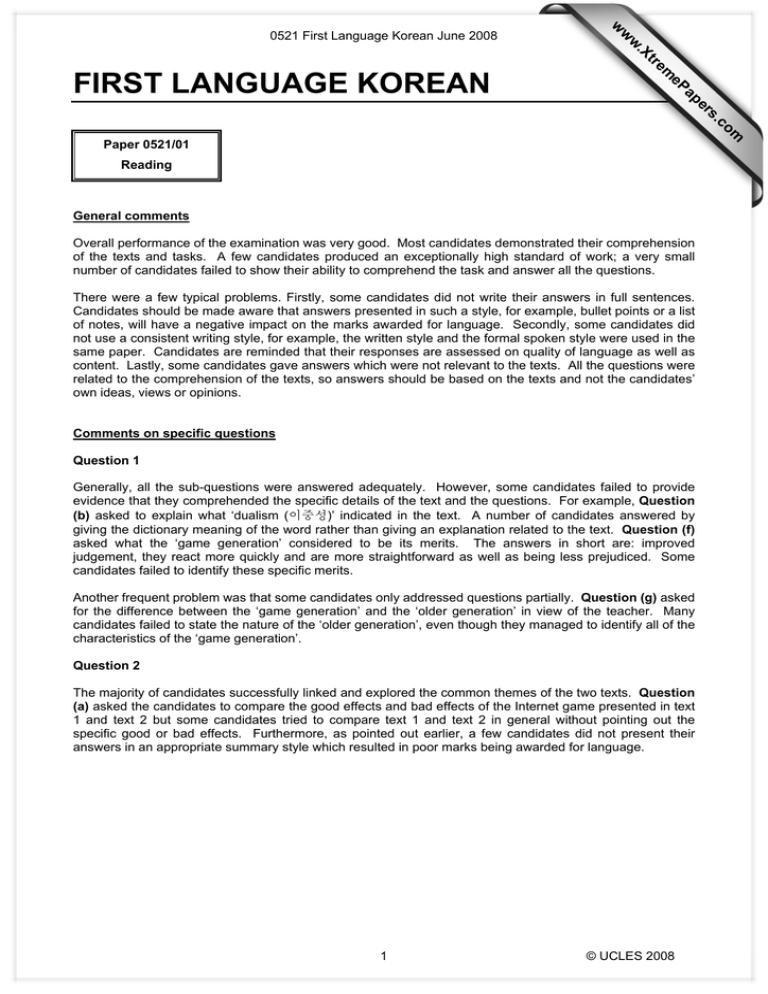FIRST LANGUAGE KOREAN www.XtremePapers.com
advertisement

w w ap eP FIRST LANGUAGE KOREAN m e tr .X w 0521 First Language Korean June 2008 om .c s er Paper 0521/01 Reading General comments Overall performance of the examination was very good. Most candidates demonstrated their comprehension of the texts and tasks. A few candidates produced an exceptionally high standard of work; a very small number of candidates failed to show their ability to comprehend the task and answer all the questions. There were a few typical problems. Firstly, some candidates did not write their answers in full sentences. Candidates should be made aware that answers presented in such a style, for example, bullet points or a list of notes, will have a negative impact on the marks awarded for language. Secondly, some candidates did not use a consistent writing style, for example, the written style and the formal spoken style were used in the same paper. Candidates are reminded that their responses are assessed on quality of language as well as content. Lastly, some candidates gave answers which were not relevant to the texts. All the questions were related to the comprehension of the texts, so answers should be based on the texts and not the candidates’ own ideas, views or opinions. Comments on specific questions Question 1 Generally, all the sub-questions were answered adequately. However, some candidates failed to provide evidence that they comprehended the specific details of the text and the questions. For example, Question (b) asked to explain what ‘dualism (이중성)’ indicated in the text. A number of candidates answered by giving the dictionary meaning of the word rather than giving an explanation related to the text. Question (f) asked what the ‘game generation’ considered to be its merits. The answers in short are: improved judgement, they react more quickly and are more straightforward as well as being less prejudiced. Some candidates failed to identify these specific merits. Another frequent problem was that some candidates only addressed questions partially. Question (g) asked for the difference between the ‘game generation’ and the ‘older generation’ in view of the teacher. Many candidates failed to state the nature of the ‘older generation’, even though they managed to identify all of the characteristics of the ‘game generation’. Question 2 The majority of candidates successfully linked and explored the common themes of the two texts. Question (a) asked the candidates to compare the good effects and bad effects of the Internet game presented in text 1 and text 2 but some candidates tried to compare text 1 and text 2 in general without pointing out the specific good or bad effects. Furthermore, as pointed out earlier, a few candidates did not present their answers in an appropriate summary style which resulted in poor marks being awarded for language. 1 © UCLES 2008 0521 First Language Korean June 2008 Component 2 will appear when available 2 © UCLES 2008



